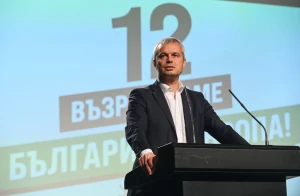
Russia must feel missile strikes it inflicts on Ukraine - political scientist Cohen
The Atlantic Council Eurasia Center Senior Fellow Ariel Cohen, in an interview with Volodymyr Ostapchuk for the Spotlight Ukraine program on Espreso TV, talked about the protection of the Ukrainian energy system and the dynamics of the war in 2023.
Russia continues to bomb the Ukrainian energy sector. What is the next step and how long can it last?
Thousands of people may die, as a result of exposure to cold weather. People may die in hospitals when hospitals don't get electricity. These are war crimes and I hope these crimes are documented and eventually those who are responsible for the destruction of civilian infrastructure in Ukraine will face justice, international tribunals, the International Criminal Court in The Hague, or UN tribunals. But in the 21st century, almost 80 years after World War II, I hope humanity has learned its lessons and will not allow these mass crimes to go unpunished. And it will be an opportunity for Ukraine to build a modern 21st-century infrastructure that will utilize the great experience of Ukrainian engineers and scientists in terms of nuclear energy. Ukraine is one of the leading nuclear powers in Europe. Before the invasion, it produced 50% of its electricity from nuclear energy. Ukraine will be able to develop its own natural gas. And also the Ukrainian gas pipeline systems will be changed so that the pipes coming from Norway can be pulled into Ukraine.
How long will it take for Ukraine to restore its energy infrastructure after the Russian attacks? And how to protect it from the Kremlin's terrorism in the future?
The first thing Ukraine needs to do is to have as much anti-missile defense as possible. Those missiles that are destroying the energy infrastructure, the grid, and the generating capacity need to be shot down. And for strikes on Ukrainian targets, Russia needs to pay the price in terms of countervailing strikes into Russian territory. Unfortunately, we are at war, and at war, people don't understand the nice language, and the reprisals need to come from the Ukrainian Armed Forces into the Russian territory, so that at some point Russia would say “you know guys, it's not worth it.” It doesn't have to be Russia's energy infrastructure. It can be ports or industrial capacity. Yeah, nobody is interested in escalation, but at the same time, no country can tolerate that its population is being targeted in a genocidal type of activity, which reminds us of the Holodomor, when the communist regime was destroying the food supply of the Ukrainian people.
In one of your interviews, you stated that there will be a new confrontation in the upcoming spring. So what are your predictions? Will 2023 be decisive in the war in Ukraine?
Every year and every month is decisive. It has now become a competition between whatever Russian industrial capacity and Russian population reserves that Putin is mobilizing without concern to the lives of these people. Without much training and throwing them into the frontlines. And, on the other hand, the Ukrainian skills and the Western capacity to provide the necessary weapons to Ukraine. There are some rumors about some kind of peace model or what the settlement would look like, but I monitor what the Russians say. Russia is not willing to negotiate peace and recognize Ukraine's territorial integrity. What Russia wants is a ceasefire. A ceasefire is very different from peace. A ceasefire is when you take a break and start pumping up your army, your military-industrial complex so sometime later you are going to deliver a punch. Ukraine should not be interested in a ceasefire. It may be interested in peace, but it's up to President Zelenskyy and the Ukrainian leadership to decide on what terms.
- News














































